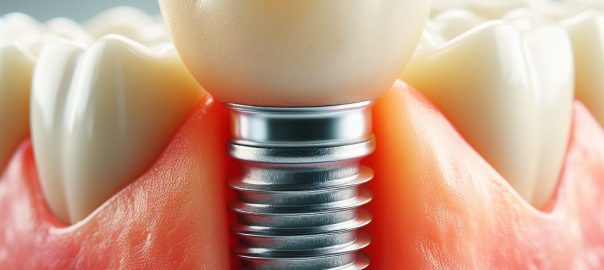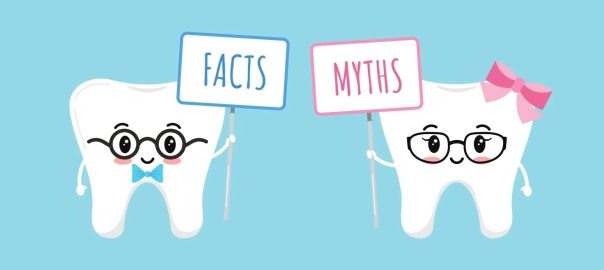Introduction to Common Dental Myths
Dental health is a crucial aspect of overall well-being, yet there are numerous myths and misconceptions surrounding it. These myths often lead to improper dental care practices, which can result in serious oral health issues. In this article, we will debunk some of the most common dental myths to help you make informed decisions about your oral hygiene routine.
Myth: Sugar is the Main Cause of Tooth Decay
One of the most pervasive myths is that sugar is the sole culprit behind tooth decay. While sugar does play a significant role in the development of cavities, other factors such as poor oral hygiene, bacteria in the mouth, and acidic foods can also contribute to tooth decay. It’s essential to maintain a balanced diet, practice regular brushing and flossing, and visit your dentist for routine check-ups to prevent decay.
Myth: You Should Avoid Brushing Bleeding Gums
Contrary to popular belief, avoiding brushing when your gums bleed is not the solution. Bleeding gums are often a sign of gingivitis, an early stage of gum disease caused by plaque buildup along the gumline. Continuing to brush gently with a soft-bristled toothbrush and using antibacterial mouthwash can help reduce inflammation and improve gum health.
Myth: Flossing Isn’t Necessary if You Brush Regularly
While brushing is essential for removing plaque and food particles from the surfaces of your teeth, it’s not enough to clean the tight spaces between them. Flossing helps remove plaque and debris from areas that your toothbrush can’t reach, reducing the risk of cavities and gum disease. Incorporating flossing into your daily oral hygiene routine is crucial for maintaining optimal dental health.
Myth: Baby Teeth are Not Important
Some people believe that baby teeth are expendable since they will eventually fall out. However, baby teeth play a vital role in a child’s oral development. They help with speech development, proper chewing, and maintaining space for permanent teeth to erupt. Neglecting baby teeth can lead to issues with bite alignment and oral health problems later in life.
Myth: Whiter Teeth are Healthier Teeth
While many associate white teeth with good dental health, the color of your teeth does not necessarily indicate their condition. Teeth naturally vary in shade, and factors such as genetics, diet, and oral hygiene habits can influence their color. Overusing whitening products can actually damage tooth enamel and increase tooth sensitivity. Focus on maintaining good oral hygiene rather than achieving an unnatural shade of white.
Myth: Mouthwash can Replace Brushing and Flossing
Mouthwash can be a valuable addition to your oral hygiene routine, but it should not replace brushing and flossing altogether. Mouthwash can help freshen breath and reduce bacteria in the mouth, but it cannot effectively remove plaque and debris from teeth and gums like brushing and flossing can. It’s essential to use mouthwash as a supplementary step, not a substitute for proper oral care.
Myth: Only Sugary Foods and Drinks Harm Your Teeth
While sugar is a significant contributor to tooth decay, acidic foods and drinks can also erode tooth enamel and increase the risk of cavities. Acidic foods such as citrus fruits, tomatoes, and vinegar-based dressings can weaken enamel over time, making teeth more susceptible to decay. Limiting consumption of both sugary and acidic foods is essential for maintaining healthy teeth.
Myth: Chewing Gum Erodes Tooth Enamel
Chewing sugar-free gum can actually have benefits for your oral health. It stimulates saliva production, which helps neutralize acids in the mouth and wash away food particles. However, chewing gum with sugar can contribute to tooth decay if not followed by proper brushing and flossing. Opt for sugar-free gum as a quick way to freshen breath and promote saliva production between meals.
Myth: Dental Treatments are Always Painful
Many people fear dental procedures due to the misconception that they are inherently painful. However, advancements in dental technology and techniques have made treatments more comfortable than ever before. Dentists can use local anesthesia to numb the area being treated, ensuring minimal discomfort during procedures. Avoiding routine dental visits out of fear can lead to more extensive and costly treatments down the road.
Myth: Teeth Whitening Damages Enamel
While overuse of teeth whitening products can potentially damage enamel and cause sensitivity, when used as directed, they are generally safe and effective. Professional teeth whitening treatments administered by a dentist are tailored to your specific needs and minimize the risk of enamel damage. It’s essential to follow your dentist’s instructions and avoid overusing whitening products to maintain the health of your teeth.
Myth: Dental Health Only Affects Your Mouth
Poor dental health can have far-reaching consequences beyond just your mouth. Research has linked oral health issues such as gum disease to an increased risk of systemic conditions like heart disease, diabetes, and respiratory infections. Taking care of your teeth and gums is essential for maintaining overall health and well-being.
Myth: Brushing Harder Cleans Better
Brushing too hard can actually do more harm than good. Aggressive brushing can wear down enamel, irritate gums, and lead to gum recession and tooth sensitivity. It’s important to brush gently using a soft-bristled toothbrush and a fluoride toothpaste to effectively remove plaque without causing damage to your teeth and gums.
Myth: Natural Remedies are as Effective as Dental Treatments
While some natural remedies may provide temporary relief for minor dental issues, they are not a substitute for professional dental care. Toothpaste, mouthwash, and other dental products undergo rigorous testing and contain ingredients proven to be effective at preventing and treating oral health problems. Consulting with your dentist and following their recommendations is the best way to ensure optimal dental health.
Conclusion
Debunking common dental myths is crucial for promoting proper oral hygiene practices and maintaining optimal dental health. By dispelling misconceptions and providing accurate information, individuals can make informed decisions about their oral care routine, leading to healthier smiles and overall well-being.
FAQs
- Do I need to visit the dentist regularly even if my teeth feel fine?
- Yes, routine dental check-ups are essential for detecting potential issues early and maintaining oral health.
- Can I skip flossing if I use a mouthwash that claims to kill bacteria?
- No, flossing is necessary for removing plaque and debris from between teeth, which mouthwash alone cannot accomplish.
- Is it true that chewing gum with sugar is bad for my teeth?
- Yes, chewing gum with sugar can contribute to tooth decay if proper oral hygiene practices are not followed.
- Are natural remedies like oil pulling effective for dental health?
- While some natural remedies may provide temporary benefits, they are not a substitute for professional dental care.
- How often should I replace my toothbrush?
- It’s recommended to replace your toothbrush every three to four months or sooner if the bristles become frayed.



